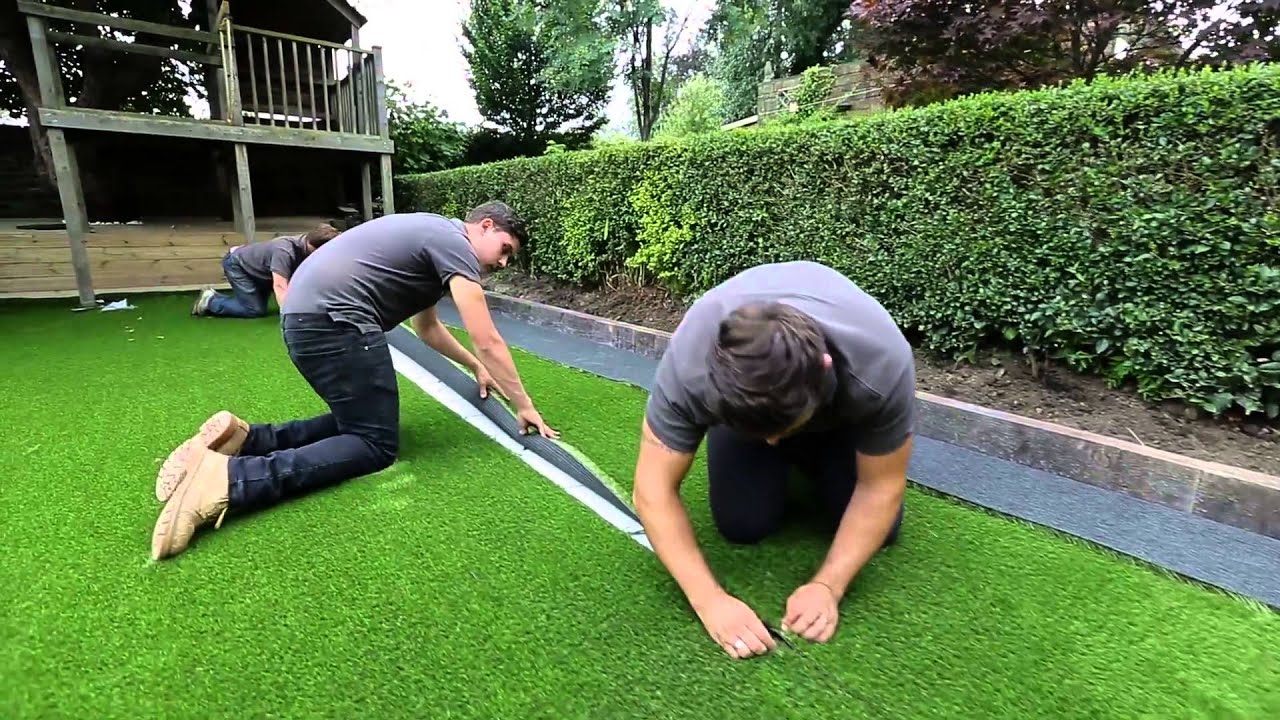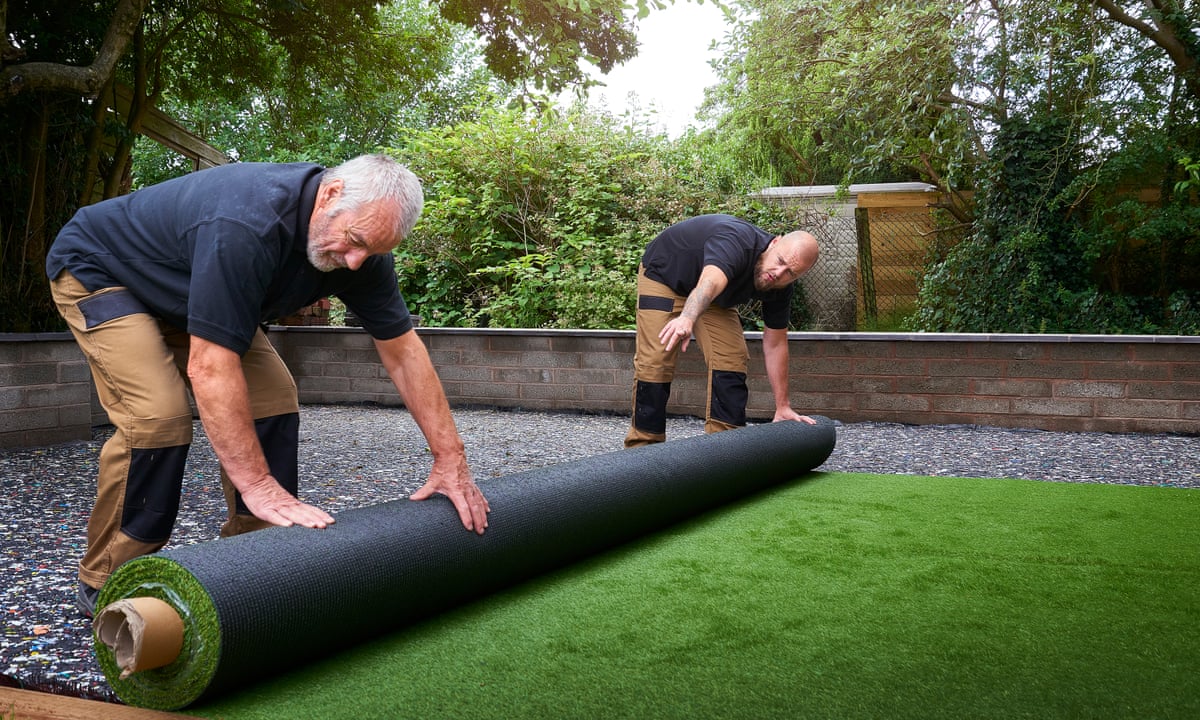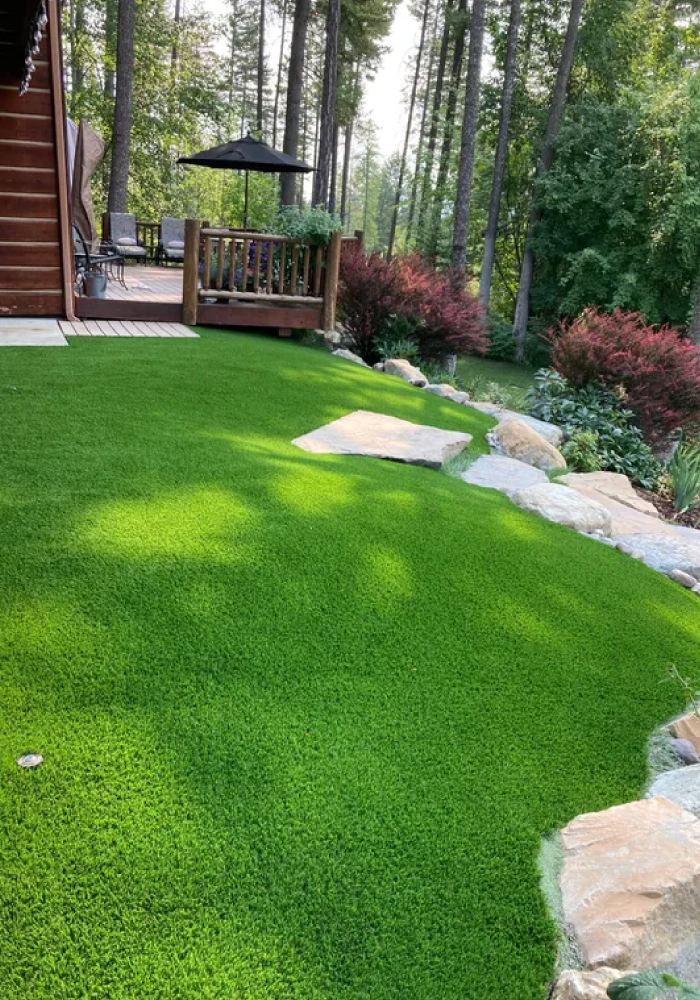Explore the Environmental Perks of Opting for Synthetic Grass Solutions
The fostering of fabricated turf services provides a compelling chance to attend to pressing ecological difficulties. By substantially minimizing water usage and reducing the application of dangerous chemicals, these choices not only promote lasting landscaping however likewise protect regional environments.
Water Conservation Conveniences
Among the most considerable benefits of synthetic grass is its capacity to preserve water. Typical yard lawns require considerable watering, especially in areas susceptible to drought or water limitations. In comparison, synthetic grass does not require watering, considerably reducing the total need for water sources. This feature is particularly useful in arid regions where water deficiency is a pushing issue.
By eliminating the need for regular watering, artificial lawn contributes to lasting landscape methods and helps minimize the ecological impact of too much water consumption. The preservation of water prolongs to the reduction of runoff, which can lead to soil disintegration and river contamination.
Furthermore, the setup of man-made turf permits property owners and municipalities to designate water sources much more effectively, concentrating on essential usages such as alcohol consumption water and agriculture. The change towards man-made grass not only promotes responsible water usage yet also lines up with wider ecological objectives intended at maintaining all-natural sources.
As communities progressively focus on sustainability, the water conservation advantages of synthetic grass present a compelling instance for its fostering in business and domestic landscape design jobs.
Reduced Chemical Usage
The transition to synthetic grass substantially decreases the reliance on chemical treatments commonly utilized in natural turf upkeep. Traditional lawn management generally entails the application of herbicides, plant foods, and chemicals to advertise growth and control pests. These chemicals can position risks to human health and wellness, regional wild animals, and the atmosphere, adding to soil and water contamination.
In comparison, man-made lawn gets rid of the need for these harmful materials. When set up, it calls for minimal maintenance, mainly containing routine cleansing and infrequent infill replenishment. This decrease in chemical usage not only profits the immediate setting but additionally adds to broader ecological security. By lessening the release of artificial compounds into the ecological community, fabricated grass promotes much healthier dirt and water systems.
Furthermore, the absence of chemical overflow linked with synthetic grass installments assists shield neighborhood waterways from air pollution, supporting aquatic life and maintaining biodiversity. Artificial turf companies phoenix. As neighborhoods increasingly prioritize sustainable practices, selecting fabricated turf presents a sensible option that lines up with environmental conservation objectives. Via this shift, homeowner can enjoy rich environment-friendly areas without endangering ecological health, leading the way for a more sustainable future
Reduced Carbon Footprint

Moreover, the setup of synthetic grass can lead to considerable water preservation. Natural yards require considerable amounts of water for irrigation, which not only contributes to the carbon impact linked with water extraction and treatment but also stress regional water sources. On the other hand, man-made lawn requires marginal upkeep, requiring no watering, thereby substantially minimizing water use and its connected power expenses.
Furthermore, the durability of man-made lawn adds to its lower carbon impact. With a life-span of up to 15 years or more, the need for constant replacements is lessened, causing less waste and lower power consumption in manufacturing and dealing with standard yard alternatives. On the whole, synthetic turf provides a sustainable alternative for environmentally mindful landscaping.
Habitat Conservation
Habitat preservation is an important consideration in the dispute over landscaping options, especially when contrasting synthetic grass to natural grass. Natural grass yards commonly need comprehensive maintenance, consisting of the use of pesticides, herbicides, and plant foods, which can adversely impact neighborhood ecological communities. These chemicals can leach right into the soil and rivers, harming indigenous flora and animals and interrupting neighborhood habitats.
On the other hand, fabricated grass provides a chance to minimize the environmental impact of landscaping. By going with artificial turf, homeowners can lessen the disturbance of natural environments connected with website here traditional yard treatment methods. Synthetic grass you could look here removes the requirement for hazardous chemicals, thereby securing nearby wild animals and keeping the stability of bordering environments. Additionally, the installment of synthetic lawn can result in the conversion of previous grass locations into more biodiverse landscapes, such as pollinator yards or native plant locations, which can support neighborhood wild animals.
Ultimately, the transition to synthetic grass not only conserves water and reduces upkeep initiatives yet likewise promotes a much more unified partnership in between human activities and the natural surroundings, advertising habitat preservation in the procedure.
Long-Term Sustainability
Long-term sustainability is a critical variable in reviewing the benefits of synthetic turf over typical lawn yards. One of the most substantial advantages of synthetic grass is its resilience; it can last as much as 15-20 years with very little maintenance, whereas all-natural yard requires regular reseeding and replacement. This durability lowers the need for constant sources, such as water, fertilizers, and pesticides, which are necessary for preserving a healthy and balanced grass yard.
Furthermore, synthetic lawn adds to a reduction in carbon emissions related to lawn treatment devices. Standard lawns often require gas-powered mowers, trimmers, and blowers, every one of which contribute to air pollution. Phoenix turf companies. In contrast, synthetic lawn eliminates the demand for such equipment, advertising a cleaner setting
Additionally, the production of artificial grass progressively utilizes recycled products, boosting its sustainability profile. As suppliers take on green methods, the environmental impact of synthetic turf proceeds to decrease.

Conclusion
The adoption of synthetic grass options presents substantial environmental advantages, including significant water preservation, reduced reliance on dangerous chemicals, and a lower carbon impact. In addition, synthetic grass help in preserving natural environments by decreasing land disruption and advertising have a peek at these guys lasting sustainability through making use of long lasting products. Jointly, these factors emphasize the potential of synthetic lawn to add positively to ecological health and wellness and use a feasible alternative to traditional landscape design techniques in an increasingly resource-conscious globe.
In comparison, synthetic lawn does not require watering, substantially minimizing the total need for water resources. By reducing the launch of artificial substances right into the community, man-made lawn promotes healthier soil and water systems.
In addition, the installation of man-made turf can result in significant water conservation. In contrast, man-made lawn needs very little upkeep, requiring no watering, consequently significantly reducing water usage and its connected power prices.

Comments on “Premium Arizona Turf Solutions for a Attractive and Lush Landscape”